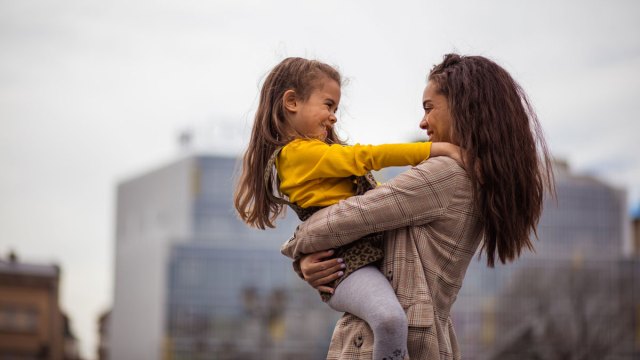Being a parent is one of the most difficult jobs in the world, and even those of us who give it our all sometimes miss the mark; things we say or do can be so subtle we don’t realize we’re doing our kids a disservice. In a viral Instagram post, childhood therapist Morgan Pommels highlights five common ways that even the most loving parents can unintentionally harm their children, some of which we’d never really thought about before.
1. Viewing your children as an extension of yourself
“A common but outdated parenting belief is that children are simply extensions of their parents,” Pommels writes. “This leads parents to adopt a more controlling parenting style, ultimately preventing children from exploring their true selves. In reality, children are entirely separate individuals with their own thoughts, feelings, and life goals. Viewing them as an extension of yourself can foster codependency, enmeshment, and low self-worth.”
2. Hoping your children succeed in all the ways you didn’t
“It’s natural to want your children to succeed, but expecting them to fulfill the specific achievements you couldn’t accomplish is about your development, not theirs,” she writes. “Doing so can instill a deep sense of failure and worthlessness in a child, making them feel perpetually inadequate regardless of their successes. Remember, it’s not your children’s job to fulfill the lifelong goals you once held for yourself.”
Instead, parents should support their kids as they create—and pursue—their own goals, whatever those may be, and whether they succeed or not.
3 Invalidating your children’s emotions and experiences
“Parents who use emotional invalidation normally struggle with seeing their child upset, and thus turn to minimization as a way to cope with their own distress,” Pommels writes. “But doing so can cause children to feel neglected emotionally. It’s important to remember that children aren’t looking for you to tell them if they are in pain or not, they are looking for you to tell them that *it’s okay* that they’re in pain.”
Along with this, many parents tend to hide their own emotions from their kids. But showing vulnerability (as uncomfortable as it might be for some) fosters deeper connections and reminds kids that you understand the emotional ups and downs.
4 Enforcing your belief systems without your child’s consent
“While there is nothing inherently wrong with educating your child on a certain belief or value system that you find important, children will still eventually shape their own worldview,” she writes. “As they grow up, they deserve to have a space to become curious about what belief or value system works for them. Resorting to shame or punishment to enforce your beliefs not only undermines their self-esteem, it also sabotages the trust they have with you.”
This one may be difficult for many parents, but it’s part of understanding that your kids are individuals in their own right—separate from you. You have to let them forge their own path, and that includes having their own set of beliefs.
5. Teaching your children to always be polite or “nice” to authority figures
“Teaching manners is key to socialization, but kids also need to learn to assert boundaries and say no, even to adults,” she writes. “This is especially true for girls, who often get the message they shouldn’t take up space or ask for their needs to be met. This carries into adulthood, making women less likely to set boundaries at work or decline unwanted advances, out of fear of being labeled ‘not nice’ or worse.”
Related: 10 Times Your Daughter Shouldn’t Say ‘Sorry’
This one is so, so important. Even authority figures can act in bad faith—and we all need to learn that it’s OK not to let others disrespect us just because they hold power over us.
If you were on the receiving end of one or more of these actions during childhood, Pommells offers this advice: “It’s okay to pause and let yourself just be hurt. Your wounds don’t go away just because they may have been caused ‘unintentionally.'” And, if you have done any of these things to your kids, it’s never too late to recognize the pattern and break it.
